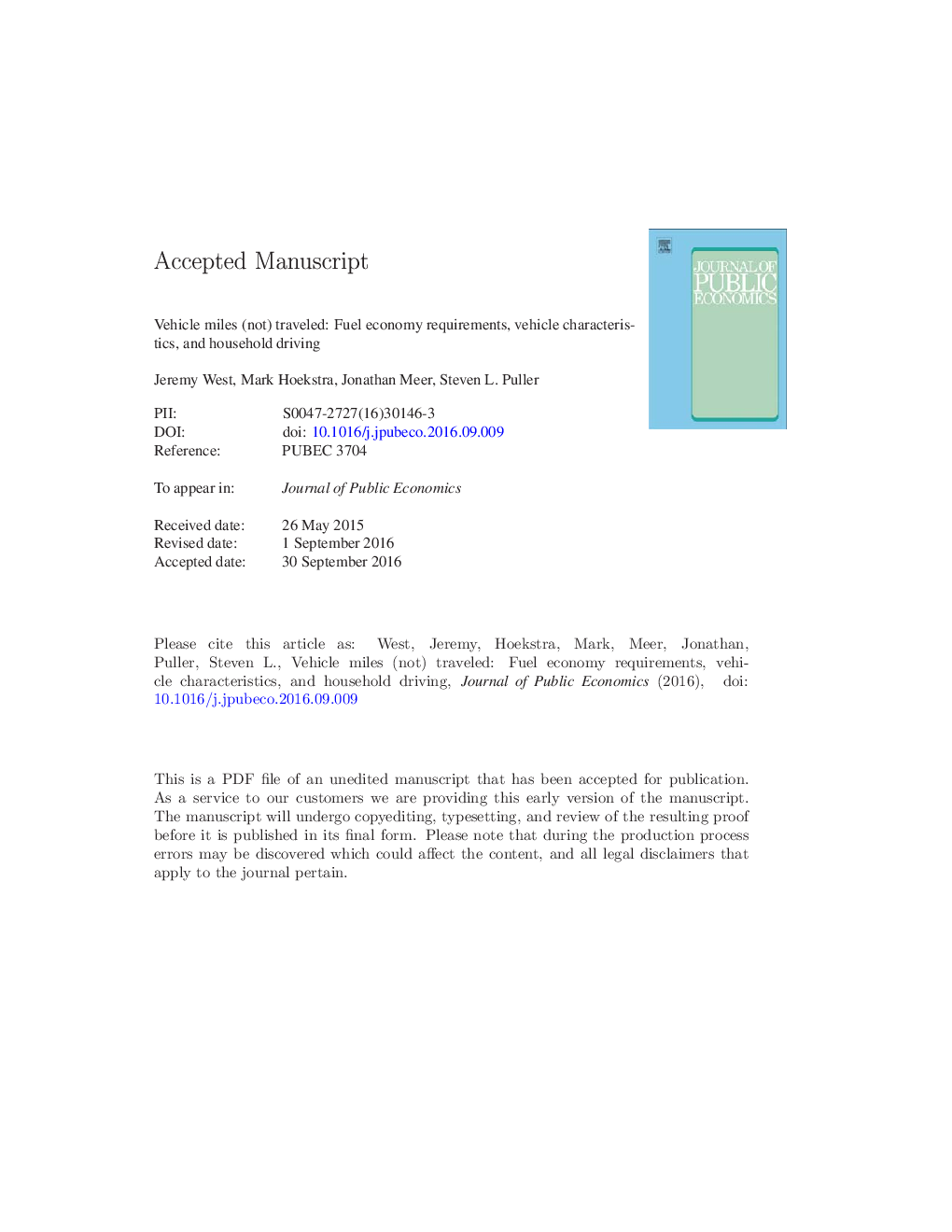| Article ID | Journal | Published Year | Pages | File Type |
|---|---|---|---|---|
| 5101826 | Journal of Public Economics | 2017 | 71 Pages |
Abstract
A major concern with addressing the negative externalities of gasoline consumption by regulating fuel economy, rather than increasing fuel taxes, is that households respond by driving more. This paper exploits a discrete threshold in the eligibility for Cash for Clunkers to show that fuel economy restrictions lead households to purchase vehicles that have lower cost-per-mile, but are also smaller and lower-performance. Whereas the former effect can increase driving, the latter effect can reduce it. Results indicate that these households do not drive more, suggesting that behavioral responses do not necessarily undermine the effectiveness of fuel economy restrictions at reducing gasoline consumption.
Related Topics
Social Sciences and Humanities
Economics, Econometrics and Finance
Economics and Econometrics
Authors
Jeremy West, Mark Hoekstra, Jonathan Meer, Steven L. Puller,
